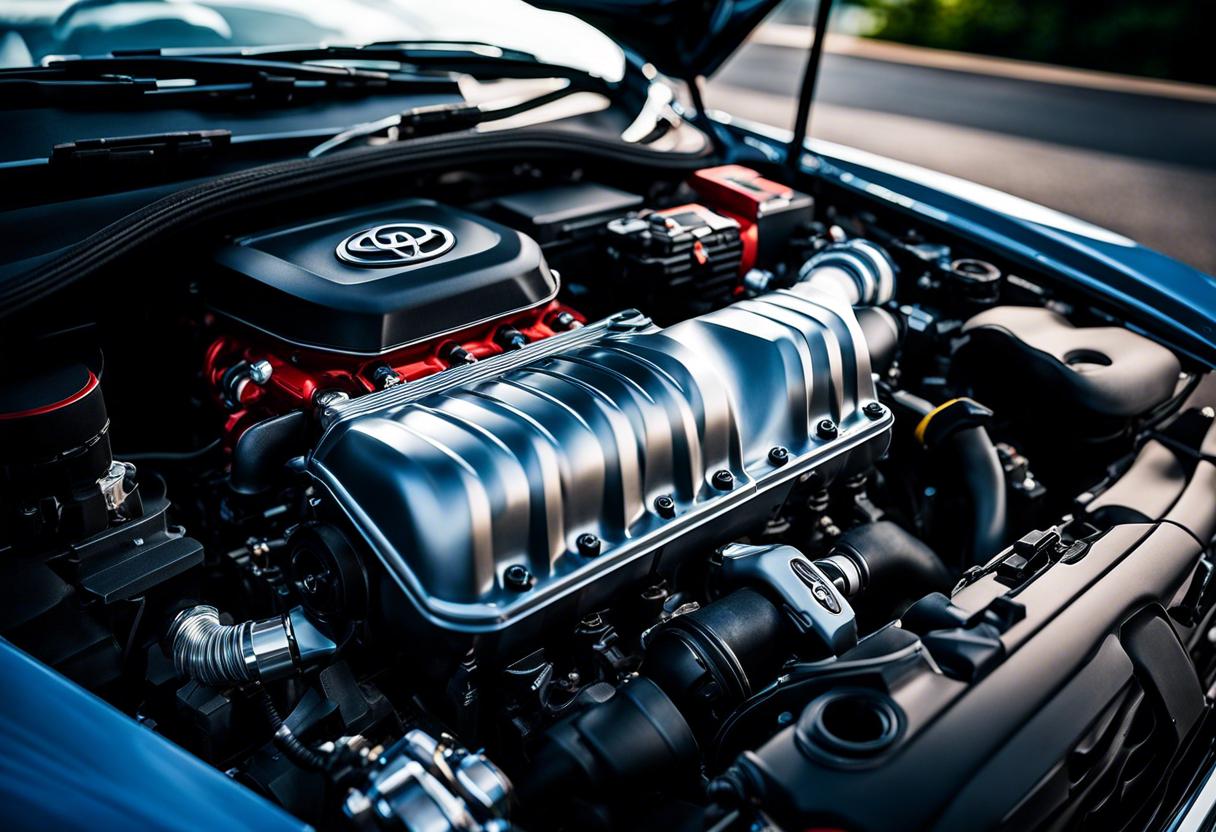Toyota has announced its vision for the next generation of internal combustion engines, underpinning its belief in the ongoing relevance of traditional technologies even as drivers are swayed by Tesla and other electric-vehicle manufacturers. In a rare collective appearance, the leaders of Toyota, Mazda and Subaru pledged ongoing backing for fuel-driven technology. This move would also provide support for countless component makers grappling with the transition to electric vehicles.
Toyota’s CEO Koji Sato highlighted the fresh role that internal combustion engines could play during a time of rapid advancement in battery electric vehicle technology. He noted that these engines were intended to function in tandem with batteries in hybrid vehicles. Despite concerns about expenses and inadequate charging infrastructure causing a slowdown in pure electric car sales, Toyota remains committed to the internal combustion engine – usually reliant on petrol or diesel.
This situation has caused a surge in hybrid demand, leading global competitors to increase their stakes in these models that merge battery and fuel engines. Toyota indicated that its new engines should start to be manufactured in line with the updated EU emission regulations, which are expected to be phased in from late 2026.
Toyota’s chief technological officer, Hiroki Nakajima, did not comment on the investment size in the new engines. However, he stated it was a fraction of the capital being directed towards electric vehicles and battery research.
As Japan’s top car manufacturer, Toyota has an enduring history of advocating for hybrid vehicles and has been slower to embrace electric vehicles, a position recently justified by high sales numbers. Nakajima stressed Toyota’s ongoing commitment to both technologies and its primary focus on whichever offers the best path to emission targets. Toyota’s Chairman, Akio Toyoda, predicts electric vehicle demand will plateau at 30% of the global market, providing a gateway for increased hybrid sales.
The new generation of engines from Toyota will potentially be 10-20% smaller to facilitate enhanced performance when matched with batteries. Initially, they’re set to be implemented in hybrid models, followed by plug-in hybrids, according to an industry insider.
James Hong, auto analyst at Macquarie, highlights that Toyota’s approach to diversify their investment in varied technologies fits their strategy. According to Hong, Toyota is concentrating on creating compact engines intended for hybrids that can be effortlessly incorporated into the design of their upcoming vehicle models without necessitating design adjustments.
The manufacturer is expected to make alternative versions of the engines, compatible with both diesel and petrol, as well as reduced-emission or carbon-neutral fuels like hydrogen or the so-called e-fuel. This initiative is a fragment of a larger plan, foreseeing alternative fuels generated from renewable hydrogen and other gases. This strategy will enable carmakers to continue the production of combustion-engine vehicles that conform to environmental regulations.
Likewise, Mazda and Subaru, who are both partly owned by Toyota, revealed their prototype engines on Tuesday. This article is protected by copyright, The Financial Times Limited 2024.

